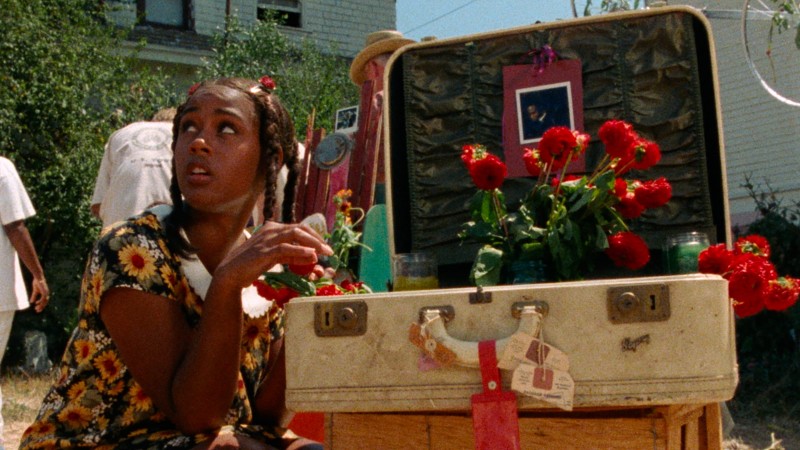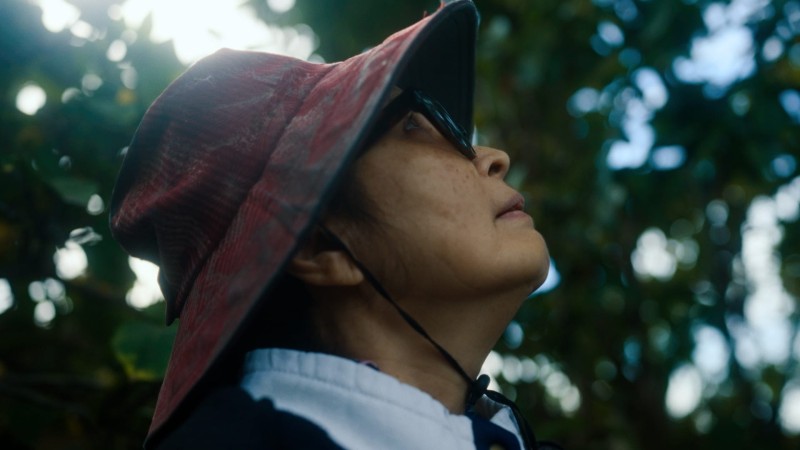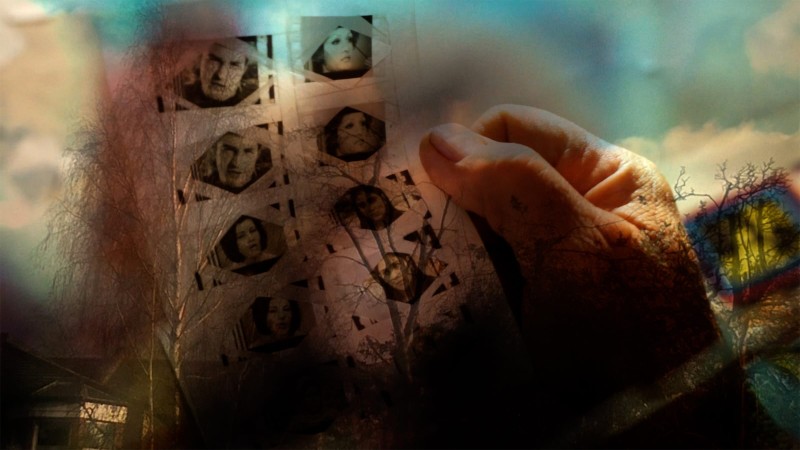All in the Family: A Conversation with Maren Ade

With only three features under her belt, German director Maren Ade has become one of contemporary cinema’s keenest observers of human behavior. Marked by a biting sense of humor, her character-driven films capture the everyday challenges of navigating the modern world and the dynamics that shape our most intimate relationships. After garnering international attention in 2009 for her sophomore feature, Everyone Else, an emotionally exacting portrait of a disintegrating relationship, Ade turned her focus to producing with her company Komplizen Film, which has been responsible for such acclaimed works as Miguel Gomes’s epic Arabian Nights. This extended break from directing made her latest film, Toni Erdmann, one of the most anticipated selections at Cannes this year.
Set primarily in Bucharest, the film stars Peter Simonischek as an eccentric practical joker who surprises his workaholic consultant daughter, Ines (Sandra Hüller), on the job in an attempt to bring some laughter into her unfeeling corporate world. This hilarious and emotionally surprising examination of a father-daughter relationship, which has been selected as Germany’s Oscar submission for best foreign-language film and has already emerged as one of the most-mentioned titles on critics’ year-end best-of lists, opens theatrically this Christmas.
While she was in town for the New York Film Festival back in October, Ade sat down with me at the Film Society of Lincoln Center to chat about Toni Erdmann and the movies that inspire her.
How did you fall in love with the movies?
We had a cinema in the town where I grew up, and for my parents and me it was normal to go see every film that played—everything, including Hollywood films and American independent films, like My Own Private Idaho. When the first consumer cameras came out, I wanted one. I enjoyed making little films with my friends, and remaking commercials; it was more about the act of filming.
In all three of your films, the characters struggle with the idea of normalcy—what it means to be a normal woman, a normal couple, a normal father. What attracts you to these kinds of characters?
It’s the simplest struggle that you have—to ask yourself what is normal or how you should be, how you should behave. And a family—where the roles are played over a number of years, whether you want them or not—can be something very heavy and static and hard to escape. So I was interested in how two people who have known each other for a very long time can start again from zero.

This past year, there were several films that depicted women going through tough circumstances in their private lives while still being great at their jobs. That seems to be something you really wanted to show in Ines’s life. How did you go about choosing her profession?
In movies, it’s often very boring to show the real job, but I thought for her I needed it to be precise and give it a lot of space. It’s not all she is, but it’s a very big part of her. In most films, you just have one scene of someone on the job and then you go into the private life. But the work life is something that we spend most of our time with, and there are so many, many conflicts within it. I was interested in the consultant business because, on the one hand, there’s a strong performance aspect, because you really have to sell something and give advice. On the other hand, there’s a question of responsibility that gets complicated. When I started writing it, I understood nothing of what consultants talk about. But I thought I should at least learn something while making a film, and it’s nice to do research.
Do you have a favorite part of the filmmaking process?
I like the parts when I’m more alone, and I’m always like, “Oh no, now I have to go shoot it.” The shooting can be very stressful, so I’m always afraid of that. But after a while it gets boring sitting around alone at home, so it’s good that there are so many faces, and because of that, the five years went by very fast. But when you have good footage, the nicest part is the editing because you can still be creative but you don’t need to interact with too many people.
Because you shoot so many takes with your actors and give them so much space, I’m wondering if you find the film in the editing room or if you already know what it’s going to be.
It really depends. With almost every scene, I have a feeling about how it will be after we finish shooting. But during the shoot, I really need to be with the actors in the situation to find the right tone. I do a lot of rehearsals during the four weeks before the shoot. Then it’s very important that I do a staging rehearsal on location to arrange everything. So much of directing is about where do I sit, where’s the camera, so I try to finish all that before we start shooting. Then, on the actual day, we try to focus on what’s going on emotionally.
Is it natural for you to bring a lot of personal elements into your filmmaking?
Personal is a good word; it’s not autobiographical. Yeah, for sure, I have only my brain, and I fill up every character with something I know. I always have the feeling with the female characters that I can go a bit deeper; with the male characters, sometimes in the end I’m not able to go as far. But the father’s fake teeth [a prop in all his practical jokes] are something that my father used for a while, so this was really something that I borrowed from him. He’s got a good repertoire of practical jokes, but he’s different from the father in the film, and we have a good relationship.

I’d love to know more about your work a producer, about both the experience of working with other filmmakers and being your own producer.
Being my own producer gives me more freedom, but I also have more freedom because I’ve found people for my company who believe that it’s good to create a situation for each director to be able to be creative. Filmmaking can sometimes be annoying. You’re preparing everything, and because there’s so much money involved, everybody’s so afraid on set, and it’s not a creative process. But with Toni Erdmann, there were two or three shooting days where I said it was completely wrong, so we threw away everything we shot and did it again. This is really something that would make a producer say, “Are you crazy?”
Working with others is a pleasure, as long as I don’t have to tell them to finish something—those are things I don’t want to do. But meeting someone like Miguel Gomes and working with him was a big pleasure; everybody’s so different, and it’s really interesting to know more about how they work.
Do you watch movies while you’re writing?
It depends. For Toni Erdmann, I watched various types of comedies, like Bringing Up Baby. I also found La dolce vita interesting because the party scene goes on and on, with a long rhythm.
Did you approach Toni Erdmann as a comedy from the start? It’s so funny, but there are also many moments of drama and sadness.
I think I wanted to do a comedy; I was really interested in that genre. But there were always both sides. And a lot of the things you find funny come out of the drama. We really took it as seriously as possible. Like doing the naked party in the film: on the shooting day, it was not so funny, it had to be as existential as possible. In the script it felt almost too inventive, but when we rehearsed it was very clear that it’s a very strong thing to have naked people in a film, and it’s also very simple because the tension is automatically high.
So what’s next for you?
I finished the film three weeks before the premiere in Cannes, and it’s so nice to have something finished. I have two small children, so I will stretch that moment forever, I think. I really need to have the need to do a film, and I have to wait until that feeling comes up. If it’s not there, I can’t write anything.




